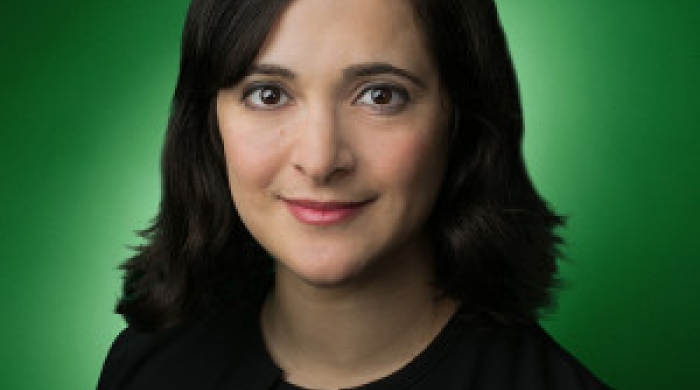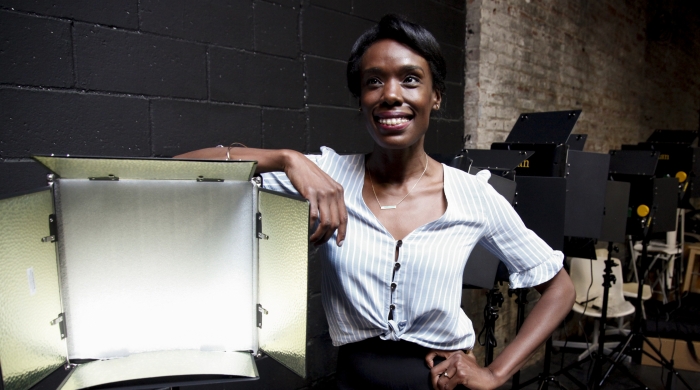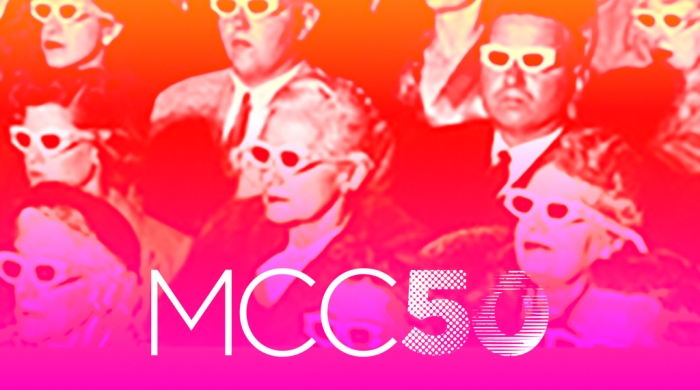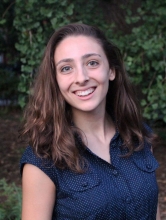
The Washington Post
Paving a path in the notoriously difficult news industry is no small undertaking.
Amanda Morris, a 2018 graduate of NYU’s Media, Culture, and Communication (MCC) and Journalism departments, makes it look easy. She’s a full time reporter for The Washington Post, and is considered a trailblazer on the national disability beat, where she’s dedicated her career to telling nuanced, essential stories of disabled and chronically ill communities and the myriad ways they live their lives.
For Amanda, the work is personal. She is a hard of hearing woman, born to two deaf parents, and grew up speaking Sign Language in her home.
Her career trajectory is a constellation of firsts. She reported for outlets like CNN, and NPR and was the inaugural bioscience reporter for The Arizona Republic. Amanda began to hone the disability beat when she joined The New York Times in 2021 as their first dedicated disability fellow. This was during the midst of the pandemic, when stories about disability and chronic illness were climbing to the fore for the average reader, and when it was more pertinent than ever to tell those stories with empathy and nuance. She rose to the moment, penning dozens of stories on everything from perspectives on how remote learning benefits disabled students, to reports of immunocompromised individuals who were left behind during COVID resurgences. She illuminated the history of the American Disabilities Act for The Times’ live coverage and spearheaded a multimedia project that traced the evolution of American Sign Language.
My Journalism major taught me how to do journalism, and my MCC major taught me how to think about journalism.
Amanda approaches her disability with the distinct belief that it is a strength, rather than a weakness, in the workplace. She’s a fervent note taker, which makes her an even better, more careful reporter. There is a practical appeal as well. “I love my community, and I love that I can sleep soundly at night,” she says.
This candidness wasn’t always the case.
While Amanda grew up in what she refers to as “the post-ADA world,” where accommodations to her disability were expected, she heard about discrimination her father, who is profoundly deaf, faced in the professional world. She was initially hesitant to disclose her disability to employers. However, it was the disability fellowship at The Times that was the first time she really “put her disability out there” and owned it in a professional setting.
These days, her disability is intrinsic to success in her career. She’s currently the disability reporter at The Washington Post, on the newly founded Well+Being Desk — a position that was the first of its kind for a legacy outlet. Well+Being includes content on “anything about how you live your life” with reportage on topics like fitness, sex, health and wellness. Amanda states the implementation of the disability beat was a way to “expand that coverage and make it more inclusive of other types of bodies and other types of minds, instead of one presumed (type of) ‘normal.’”
She now has the chance to work across different desks; politics, international, business, and even sports. Stories she’s written about Paralympians, disabled workers making subminimum wage, and State Representative (and stroke victim) John Fetterman’s use of adaptive technology illustrate how disability intersects with just about every aspect of our lives.
Amanda’s academic journey is just as impressive as her professional one.
She grew up in Farmington, Connecticut by way of Pennsylvania, and came into journalism almost by accident. “I didn’t grow up as a news junkie, I grew up as someone who liked to talk and to write,” she says. And when a class on journalism was the only one available to fulfill her credit obligation, she joined it, and immediately became hooked. When it came time to apply to college, she chose NYU due to its location and the chance to be immersed in the “real world.” In New York, she held a variety of internships at places like MSNBC and CNN, and worked as an associate news director for the university’s radio station, WNYU radio. During her sophomore year studying abroad in Prague, she interned for local news outlets during a pivotal election year in the U.S. and worked on the student-run podcast, “PragueCast.”
Amanda considers her majors, MCC and Journalism, to be complementary, affording her the chance to look deeper at both the technical aspects as well as the cultural impacts and reverberations of her craft. She says, “My Journalism major taught me how to do journalism, and my MCC major taught me how to think about journalism.” She credits her MCC major — which included courses on globalization, race and the media, and gender and communication, with making her a more responsible, ethical reporter.
Faculty mentorship was another key part of her success. MCC Professor Mara Mills, who co-founded NYU’s Center for Disability Studies and spearheaded the creation of the University’s minor in Disability Studies, was essential in inspiring the trajectory of her academic career. An assignment for “The History of Media and Communication,” a core requirement of the MCC major, asked students to consider how technology has impacted communication. She wrote about the history of hearing aids, an adaptive technology Amanda has used since she was one. She recalls a world opening up to her, and could see how her disability could fit into the larger project of her life. The rest, they say, is history.
Amanda has since cleared the way for other disability beat reporters, and is proud to be involved in active discussions on how the beat is shaped. She’s been invited to speak at conferences, at journalism schools and with other reporters about ethical considerations when it comes to reporting responsibly on disability. A large part of her work is a deep dedication to championing the careers of other disabled journalists in the field. “There’s a lot of us (disabled people), and there’s a lot of us in journalism.” A nonprofit, to bring awareness and resources to disabled journalists, which Amanda is spearheading, is in the works.
Amanda is proud to be on the vanguard of what she calls “a reckoning of disability in journalism,” where she reports on the joys, achievements, hurdles and obstacles that make up the lives of disabled people, a large - and growing - swath of the population.
Of the amount of stories there are still to be told, she says, “I wish I had five of me.”
Related Articles
Questions about Google: An Interview with Valerie Streit (MA '06)
Valerie Streit (MA '06), a graduate of NYU Steinhardt's media ecology program, talks about her work life at Google.
Founded by an NYU Grad, the Bushwick Film Festival is Empowering Diverse Storytellers
Media, Culture, and Communication alum Kweighbaye Kotee (BS ‘09) founded the festival while a Steinhardt student. The festival will celebrate 15 years next fall.
50 Years of Media Studies at NYU Steinhardt
The Department of Media, Culture, and Communication celebrates 50 years since Neil Postman founded the Media Ecology program, launching media studies at the university.
Related Department
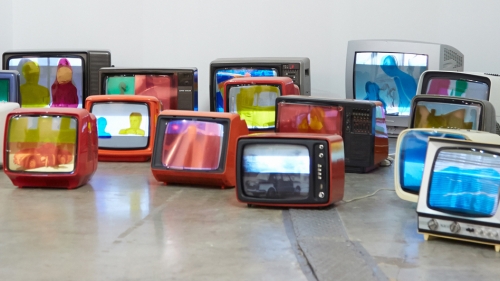
Media, Culture, and Communication
239 Greene Street, 8th floor
New York, NY 10003
212-998-5191 | contact

